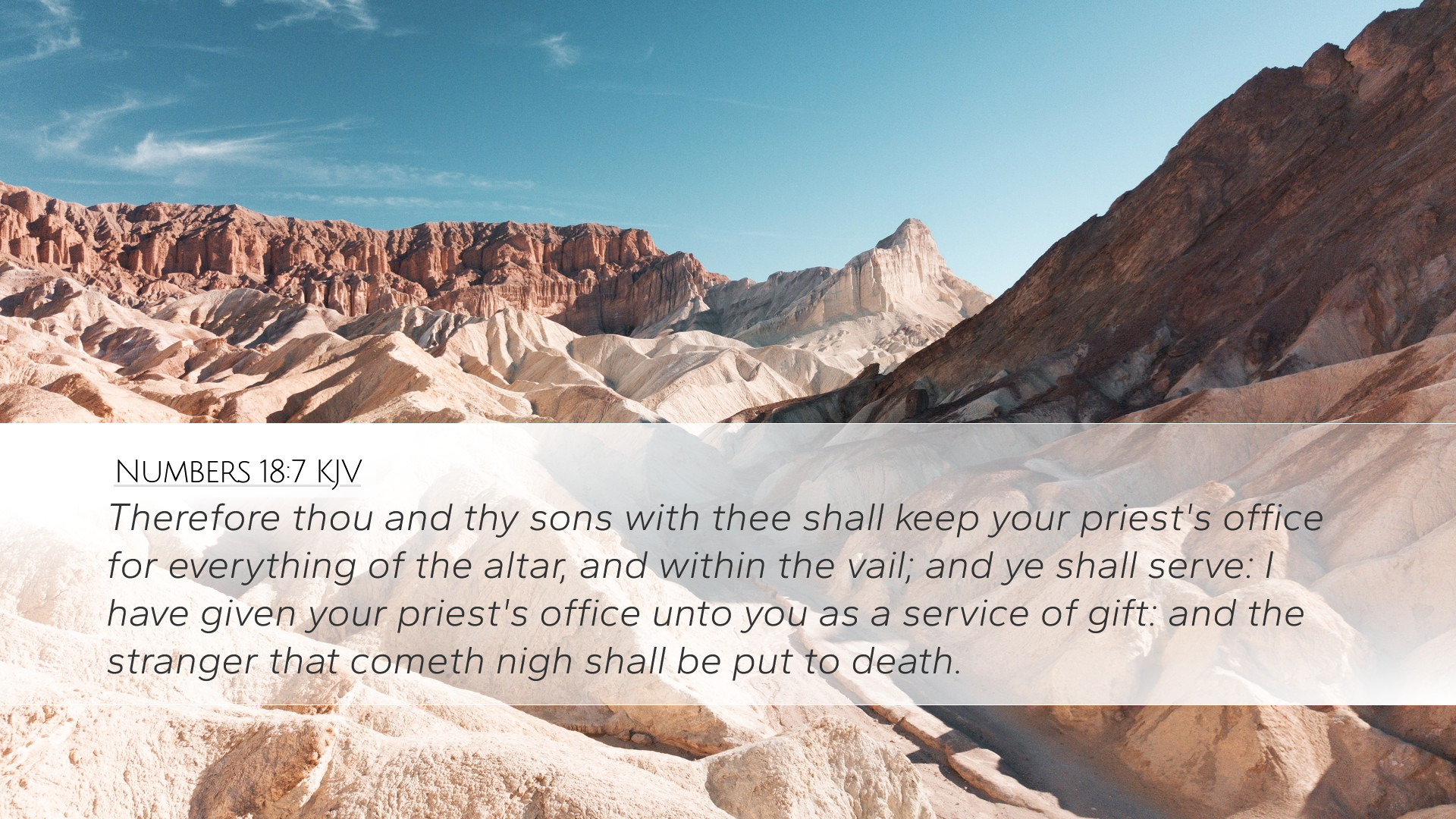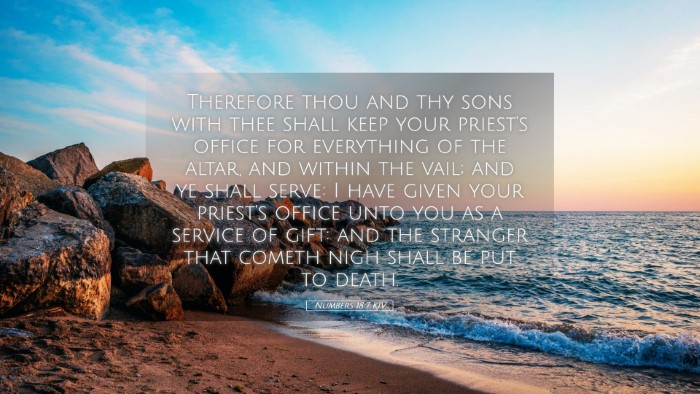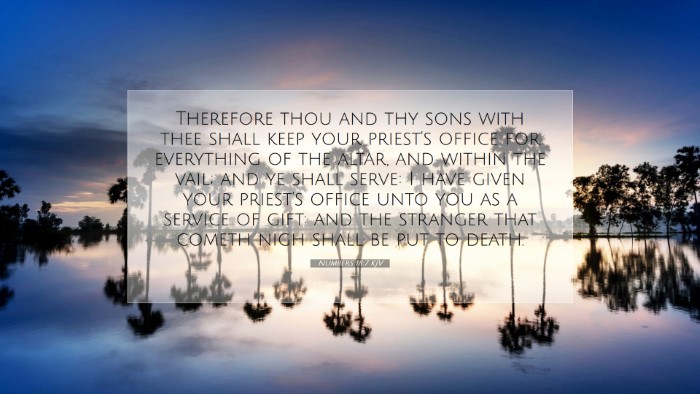Commentary on Numbers 18:7
Numbers 18:7 states: “Therefore thou and thy sons with thee shall keep your priest's office for everything of the altar, and within the veil; and ye shall serve: I have given your priest's office unto you as a service of gift: and the stranger that cometh nigh shall be put to death.” This verse highlights the exclusive responsibilities and privileges of the Levitical priesthood, as well as the severe consequences for any unauthorized approach to these sacred duties.
Contextual Background
To grasp the full significance of Numbers 18:7, it is essential to consider the overarching narrative of the Book of Numbers, particularly the role of the Levites and Aaron’s lineage. Following their deliverance from Egypt, the Israelites are given specific instructions on worship and priestly duties. This structure is crucial for maintaining the holiness and order of Israel’s relationship with Yahweh.
The Role of the Priests
According to Matthew Henry, the priesthood is granted to Aaron and his descendants as a divinely appointed office, emphasizes the importance of their role in mediating between God and the people. They are responsible for the offerings, sacrifices, and rituals that maintain the covenant relationship with God. Henry remarks that this sacred office is a gift, highlighting the grace involved in their calling; it is not a right earned but a privilege bestowed.
Priestly Duties Explained
Albert Barnes elaborates on the nature of the priestly duties. He notes that priests were tasked with maintaining the altar and the sanctuary, symbolizing their role as intermediaries where the people could approach God. They were not just ceremonial figures but were intimately involved in every aspect of worship. Barnes emphasizes that the duties included offering sacrifices, burning incense, and teaching the Law to the people, vital for spiritual and communal integrity.
The Significance of Holiness
In Numbers 18:7, the severe warning about the stranger approaching the sanctuary underlines the principle of holiness in worship. Adam Clarke highlights that the sanctity of the priesthood must be preserved, which is reflected in the drastic measures against unauthorized approaches. This reflects broader biblical themes where holiness and obedience are paramount in the community's relationship with God. Clarke points out that this prohibition serves not only as a protective measure for the sacred space but reinforces the seriousness of God's holiness.
Theological Implications
The theology surrounding priestly duties in this verse leads to profound implications. The priests are entrusted with representing the people before God, which holds weighty significance regarding their moral and spiritual integrity. As Matthew Henry notes, it emphasizes the unapproachable holiness of God and the necessity for proper mediators. This foreshadows the ultimate priestly role fulfilled by Christ, who, as the New Testament reveals, is the perfect mediator between God and humanity (Hebrews 4:14-16).
Lessons for Modern Believers
This text also offers vital lessons for contemporary faith communities:
- The Importance of Proper Leadership: Just as the priests were set apart, leaders within the church today bear a similarly sacred responsibility to adhere to God's commands.
- Holiness and Reverence: The modern community of believers must approach God with an awareness of His holiness, recognizing the serious nature of worship.
- Christian Priesthood: 1 Peter 2:9 speaks of believers as a royal priesthood, drawing parallels to the Levitical system and emphasizing shared responsibilities in spiritual worship.
Concluding Thoughts
In summary, Numbers 18:7 serves as both a directive for the Levitical priesthood and a reminder for all believers of the nature of divine service. It encapsulates the weight of responsibility carried by those who serve in sacred capacities, rooted in the awareness of God's holiness and grace. Reflecting on these truths allows pastors, students, theologians, and Bible scholars to appreciate the continuing relevance of these ancient texts in shaping spiritual identity and community practices today.


